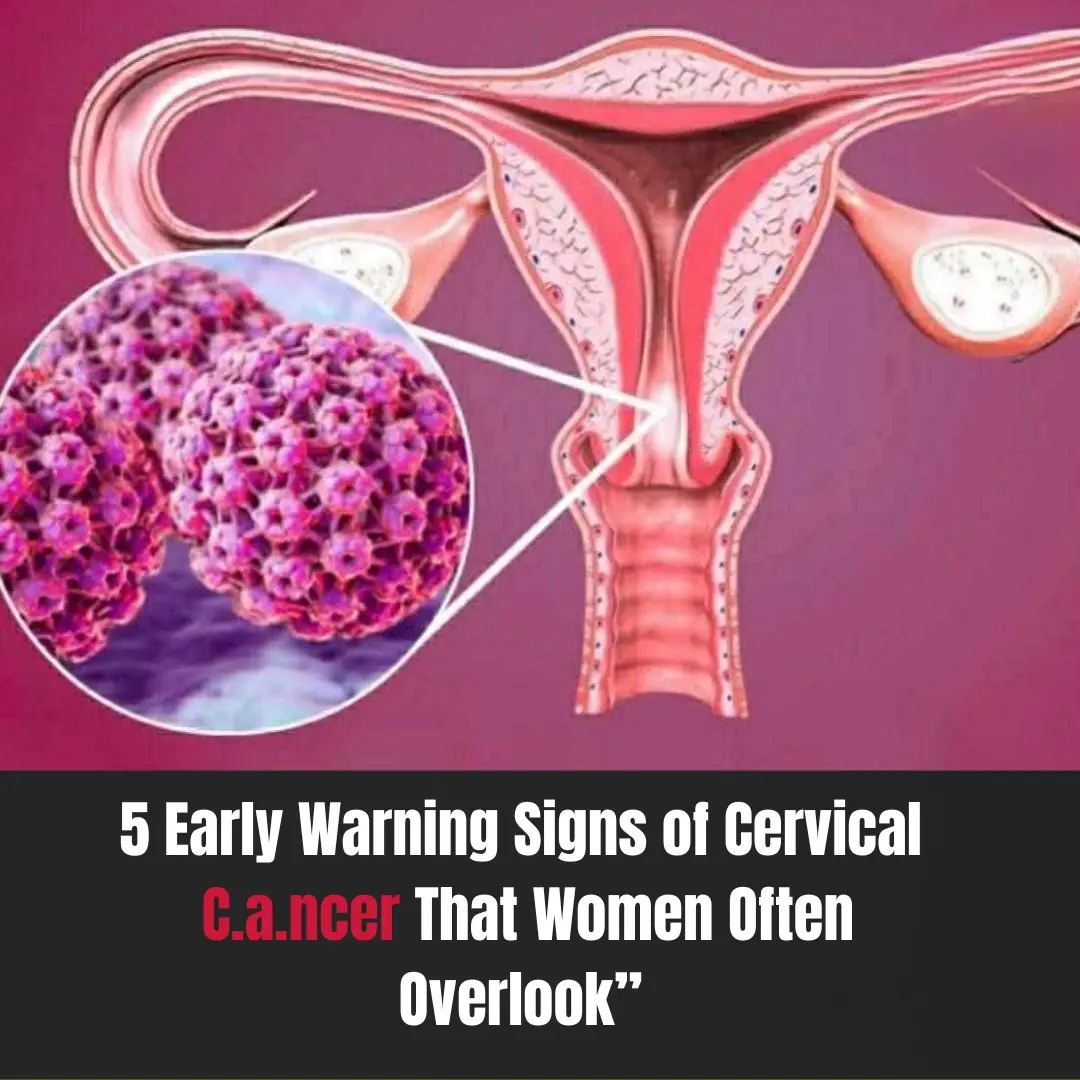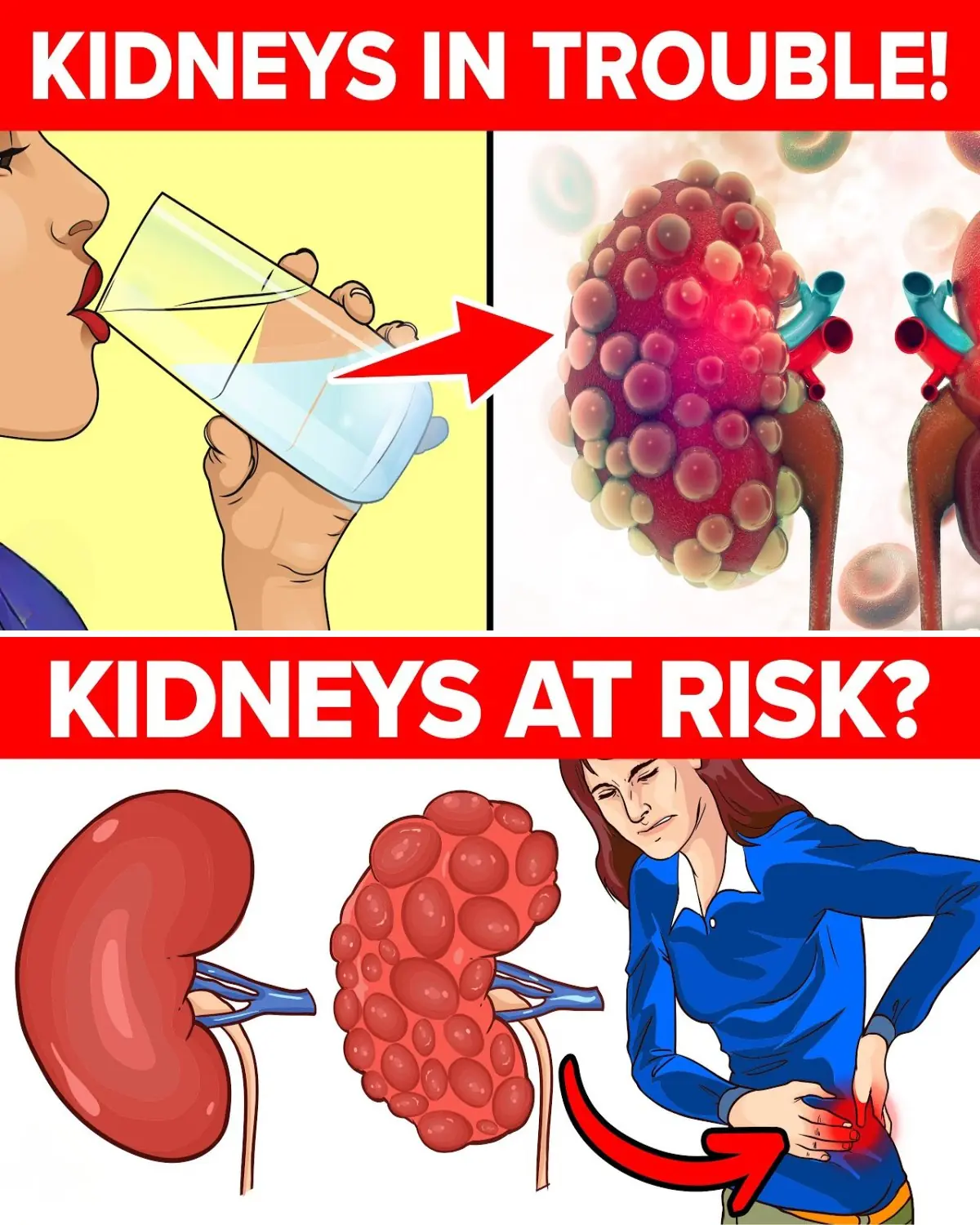
8 Early Warning Signs Of Ovarian Cancer You Shouldn’t Ignore

Ovarian cancer is often called the "silent killer." Like many other types of cancer, it tends to show no symptoms for a long time. When symptoms do appear, they are vague and can indicate a wide range of health issues—both serious and benign. Unfortunately, by the time ovarian cancer is diagnosed, it has often already spread, limiting treatment options.
There are some early warning signs you can watch for. However, it’s important to balance your observations with other factors—jumping to conclusions too quickly can lead to unnecessary worry.
Maintain a Healthy Balance Between Denial and Hypochondria
First of all, don’t panic. As mentioned earlier, your symptoms could mean many different things. The chance that you actually have cancer is quite low. The National Ovarian Cancer Coalition notes that out of 100 women with symptoms similar to ovarian cancer, only one actually has early-stage ovarian cancer.
Still, if something feels wrong, don’t ignore it. Many people fear cancer and still view it as a death sentence, so they try to deny the fact that something might be wrong with their bodies. But doing so only wastes precious time. According to MedicineNet, only 20% of women with ovarian cancer are diagnosed early—when the disease is most treatable. So, if you experience persistent and unusual symptoms, consult a doctor. Better safe than sorry.
The most common type of ovarian cancer is epithelial tumors, which form in the thin layer of tissue covering the outside of the ovaries. These account for 90% of all ovarian cancers. Less common types include stromal tumors, which develop in the ovarian support tissue, and germ cell tumors, which originate in the egg-producing cells.
The 8 Most Important Early Warning Signs of Ovarian Cancer
-
Bloating or Abdominal Swelling
Your abdomen increases in size, feels bloated, and may appear distended. You might notice your clothes feel tighter around your waist and hips. -
Constipation and Other Bowel Changes
Unexpected changes in your bowel movements, including persistent constipation. -
Pelvic Pain
Discomfort or pain in the pelvic region, sometimes also radiating to the abdomen. If the pain is persistent, don’t just brush it off or mask it with painkillers—pain is often a warning signal. -
Lower Back Pain
Especially when it spreads toward the pelvic area. -
Urgent or Frequent Urination
You feel the need to urinate urgently, barely making it to the restroom, or you need to go more often than usual. -
Loss of Appetite or Feeling Full Quickly
You feel full after eating very little. Also, watch for any unexplained weight loss. -
Pain During Intercourse
-
Fatigue
Feeling extremely tired or low on energy may indicate an underlying issue.
You don’t need to have all of these symptoms. Sometimes, just one persistent symptom can indicate that something may be wrong. If symptoms last more than two weeks, it’s time to see a doctor.
Ovarian Cancer – Risk Factors
The exact cause of ovarian cancer remains unknown, but several risk factors may increase your likelihood of developing it:
-
Age: Women over 50 are at higher risk. About 50% of cases are diagnosed in women over 60.
-
Family History: A family history of ovarian, breast, or colon cancer increases your risk.
-
Reproductive History: Women who have never had children, or who began menstruating early or reached menopause late, are at greater risk.
-
Certain Medications: Long-term hormone therapy after menopause or fertility treatments in high doses may increase the risk.
-
Other Risk Factors: Smoking, obesity, use of intrauterine devices (IUDs), and polycystic ovary syndrome (PCOS).
The Importance of Early Detection and Awareness
One of the greatest challenges in fighting ovarian cancer is the lack of reliable screening methods. This makes it even more important for women to stay informed about their bodies and recognize when something feels off. Unlike breast cancer, which can be detected early through mammograms, ovarian cancer often goes undetected until it has advanced.
-
Regular Check-ups: Since symptoms are often subtle, regular visits to a gynecologist can help. Pelvic exams, transvaginal ultrasounds, and CA-125 blood tests can help detect abnormalities.
-
Genetic Testing: If you have a family history of ovarian or breast cancer, consider testing for BRCA1 and BRCA2 mutations. This can help you understand your risk and take proactive steps to manage your health.
-
Healthy Lifestyle Choices: Maintain a balanced diet, exercise regularly, and avoid known risk factors like smoking and excessive alcohol consumption. These steps support your overall well-being and may reduce cancer risk.
Researchers are still working to develop better methods for early detection. Until then, being informed, listening to your body, and acting on persistent symptoms may be one of your best defenses against disease.
Some of the symptoms above may also be signs of cervical cancer. To learn more about the risk factors and warning signs of cervical cancer, read my article:
“10 Warning Signs of Cervical Cancer You Shouldn’t Ignore”
Related articles:
-
Ovarian Pain and Lower Pelvic Pain – 13 Possible Causes
-
9 Reasons You Shouldn’t Ignore Spotting Before Your Period
-
Uterine (Endometrial) Cancer – Symptoms, Risk Factors, and Prevention
Our Mission
At Healthy and Natural World, our mission is to empower people to take charge of their health by providing comprehensive, practical, and well-researched information.
We strive to be objective, fair, and honest—presenting both sides of the story. Our articles include numbered scientific references, some of which are clickable and others listed at the end of each article. These sources link to peer-reviewed scientific journals or respected medical websites.
News in the same category


If Your Kidneys Are in Danger, Your Body Will Send You These 8 Signals — Don’t Ignore Them

The Surprising Effects of Avocado on Your Heart and Brain

Natural Remedy for Cataracts and Eye Inflammation: Restore Your Vision Naturally

Unlock the Golden Magic of Corn Silk Tea

9 Powerful Home Remedies to Get Rid of Fungal Infection (Daad, Khaj, Khujli) Fast

7 Shocking Health Benefits Of Eating Sweet Potatoes Every Day — According To Science

About 15 Minutes Before a Stroke, the Body Often Sends 4 Clear Warning Signs — Call Your Loved Ones Immediately

Hidden Dangers in Your Mouth: Early Signs of Oral Cancer

The Secret Power Of The Herb That Helps You Age Gracefully

The Unexpected Benefits of Eating Chicken Feet

If You See Someone with “Blue Veins,” Tell Them This — It Could Save Their Life

The Secret Power of Two Eggs a Day: Could This Simple Habit Transform Your Health? Buy vitamins and supplements

Man Passed Away After Eating Eggs — Stop Eating Eggs This Way Immediately

8 Foods That Fight Tumors — Eat Them Regularly

Does Eating Bananas Before Bed Have Any Benefits?

The Tongue as a Health Indicator: Meaning of a Whitish Color

Benefits of Boiled Eggs: Nutrition and Healthy Recipes

5 early warning signs of cervical cancer

7 Innocent Mistakes That Get Your Kidneys in Big Trouble
News Post

WHAT HAPPENS WHEN WE TONGUE KISS…See more

Nature’s Secret: 4 Healing Leaves That Support Metabolism, Immunity & Circulation Naturally

Don’t Drink Coconut Water Before You Know These 11 Secrets!

Pumpkin Seed Milk — The Natural Parasite Cleanser

Fast Rice Water Trick for a Brighter Smile

Morning Drink to Revive Your Kidneys Fast

The Onion Recipe That Could Transform Your Blood Sugar, Support Cleaner Arteries, and Protect Your Heart!

Top 4 Fruits That Help Your Kidneys Flush Out Toxins While You Sleep

Ginger, Clove, and Honey: The Natural Trio Your Body Will Thank You For

Heal 15 Years of Joint Pain Naturally with Turmeric and Honey Tea

This Juice Revived My Grandma’s Energy — Say Goodbye to Fatigue and Body Pain with This Natural Recipe

The Benefits of Eating 2 Boiled Eggs Every Morning: Transform Your Health!

If Your Kidneys Are in Danger, Your Body Will Send You These 8 Signals — Don’t Ignore Them

The Surprising Effects of Avocado on Your Heart and Brain

Ways to Get Over a Man Who Didn’t Value You

I’m 66 but Look 36 — My Secret? Aloe Vera & Ginger for Firm, Smooth Skin

How to Make Okra Water to Treat 17 Health Problems Naturally

Banana and Egg Mask to Look Younger Even in Your 80s

Scent Leaf Secrets Unveiled: 10 Surprising Health Benefits of This Miracle Herb
